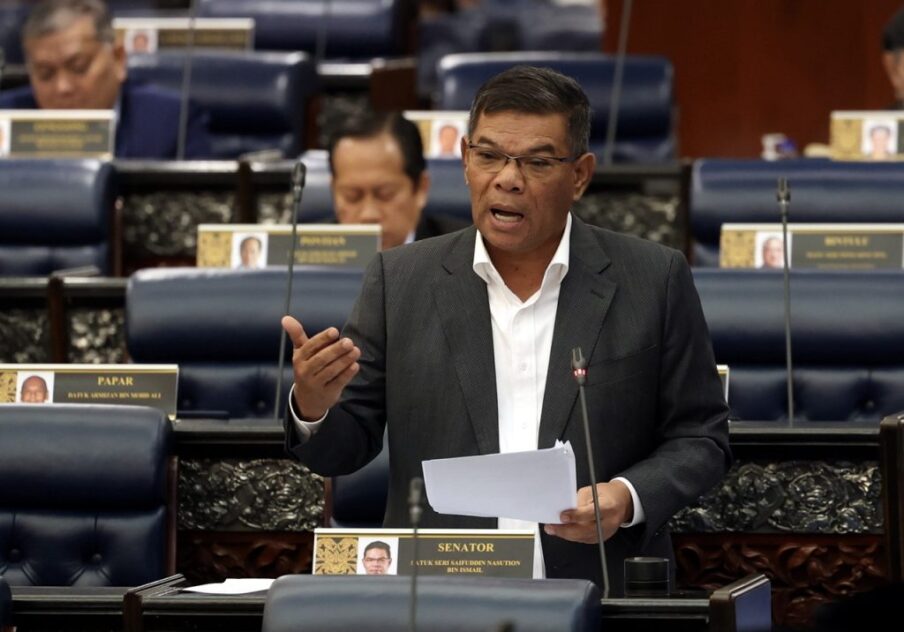THE global minimum tax (GMT) and qualified domestic minimum top-up tax (QDMTT), which is part of the GMT’s overall framework, were mentioned in the Budget 2023 Speech on Oct 7. However, Parliament was dissolved on Oct 10.
Does the dissolution affect the GMT plan? Our answer to this – absolutely not.
The reason is simple. The GMT is an international taxation agenda. The top-up taxes are on the table. If Malaysia does not implement it, the taxing right would be ceded to other countries. Hence, there is no reason for Malaysia not to do it.
Unlike the goods and services tax (GST), capital gains tax or inheritance tax, implementing the GMT is key to upholding Malaysia’s tax sovereignty.
Our view is in line with what has been said by incumbent finance minister Tengku Datuk Seri Zafrul Tengku Abdul Aziz at the 51st Study Group on Asia-Pacific Tax Administration and Research (SGATAR) Annual Meeting 2022 on Tuesday (Oct 18) that the GMT is expected to be implemented in 2024.
What exactly is GMT and who will be affected?
Simply put, the GMT at 15% is the new “low” for the effective corporate tax rate for large multinational corporations (MNCs); wherever an MNC operates, it must pay the right amount of taxes – that is, at least 15%.
An MNC can operate in low-tax, high-tax and zero-tax countries. And in a country that offers tax incentives, the universal GMT rules would kick in to ensure 15% of tax is paid somewhere in the world.
The GMT applies to MNCs operating in at least two jurisdictions, with annual consolidated group revenue of at least €750 mil in at least two of the four immediately preceding fiscal years.
A number of Malaysian listed groups, the pension fund and Government entities could be affected directly or indirectly as well as inbound investments of large foreign-based MNCs.
Any top-up tax to 15% will be collected under QDMTT, followed by Income Inclusion Rule (IIR) and finally the Undertaxed Profit Rule (UTPR). which all are highly complex.
Why does Malaysia need to jump on the bandwagon?
Malaysia will cede the taxing right to other countries if the GMT is not adopted.
Take, for example, a Malaysian-based listed company with an operating subsidiary in country X that enjoys tax exemption for 10 years. If Malaysia does not implement the GMT, the top-up taxes (15% to 0%) will be collected by other countries that implement it.
Another example is a situation where there is a lowly-taxed Malaysian subsidiary of a foreign-headquartered MNC. Unless Malaysia adopts the GMT, in particular the QDMTT, the top-up tax of 15% will be ceded to a jurisdiction where the parent company is.
Since money is on the table, we believe that implementing the GMT is essential for Malaysia.
Is Malaysia in a rush?
While some feel that Malaysia need not rush into announcing these and be the so-called “first mover”, we are of the view that this announcement is apt and timely.
The GMT was mooted several years ago and has since gained momentum. Many affected taxpayers, including the Malaysian groups that are listed on Bursa Malaysia and foreign direct investors, would certainly be keen on Malaysia’s direction.
We can, of course, expect more details on the GMT and QDMTT to be available in due course of time.
What is next for affected MNCs?
We expect that GMT rules would start to apply to affected MNCs from financial years that begin on or after Jan 1, 2024.
While the first GMT return will only be due much later, an early understanding of the impact of the GMT and preparation will be key to effective and efficient implementation.
We recommend MNCs undertake impact assessment from a group-wide perspective and identify risk areas as well as analyse if the present accounting system(s) of their respective groups would be able to generate the data required for the purposes of the GMT.
After all, the configuration of the accounting system(s) to ensure GMT data can be generated will take time, while the efficacy of the tax holiday currently being enjoyed needs to be reviewed.
The GMT is not an option per se and, hence, Malaysia’s statement on the GMT demonstrates the Government’s commitment to be part of the global tax ecosystem.
For taxpayers, however, the time to act on this is now. – Oct 21, 2022
Tan Hooi Beng is Deloitte Malaysia and Southeast Asia international tax leader while Kelvin Yee is Deloitte Malaysia director. Deloitte is a leading global provider of audit and assurance, consulting, financial advisory, risk advisory, tax and related services.
The views expressed are solely of the author and do not necessarily reflect those of Focus Malaysia.
Main photo credit: Getty Images










